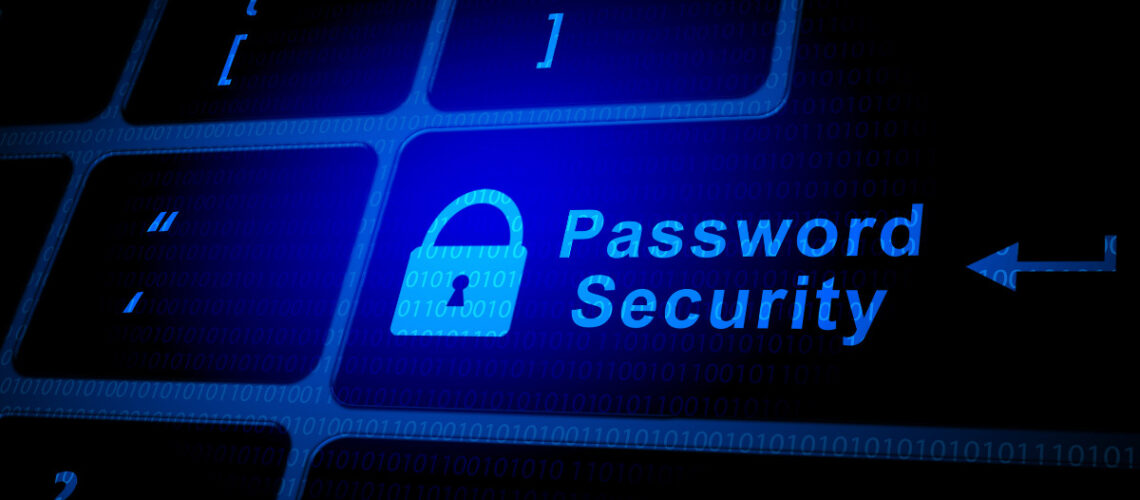In our increasingly interconnected world, protecting your online presence is more critical than ever. Passwords are the first line of defense against unauthorized access to your accounts, and they play a pivotal role in safeguarding your sensitive information. However, it’s alarming how many people still use weak, easily guessable passwords or commit common security mistakes. This comprehensive guide will delve into the importance of password security, provide insights into best practices, and help you fortify your digital fortress.
The Foundation: What is Password Security?
To understand the significance of password security, it’s essential to grasp the foundational concept of what a password represents in the digital realm. A password is your first line of defense against unauthorized access to your online accounts, whether it’s your email, social media profiles, or online banking. It’s essentially a digital key, and much like a physical key that safeguards your home, it must be strong and well-protected.
The core tenets of password security revolve around creating, managing, and protecting these keys effectively. This includes crafting robust passwords, safeguarding them from prying eyes, and staying up-to-date with the latest security practices.
Avoid Common Pitfalls
Common password security pitfalls can have far-reaching consequences for individuals and organizations. One prevalent issue is the use of weak and easily guessable passwords. Many people still rely on passwords like “123456,” “password,” or their own name, making it child’s play for attackers to crack into their accounts. Reusing passwords across multiple accounts is another pitfall. If one account gets compromised, attackers can potentially access multiple others. Neglecting regular password updates is a mistake as well.
Many individuals use the same password for years, increasing the likelihood of it falling into the wrong hands. The excessive sharing of passwords, either through written notes or digital means, can also pose significant security risks. Lastly, ignoring two-factor authentication (2FA) and relying solely on passwords is another blunder. 2FA provides an additional layer of security, but many people still overlook its importance. It’s crucial to be aware of these pitfalls to fortify your password security effectively.
Password Managers: Your Best Ally
Remembering a multitude of complex passwords can be daunting. This is where password managers come to the rescue. Password managers are secure tools that generate, store, and autofill complex passwords for various online accounts. They not only enhance security but also save you from the hassle of memorizing numerous login credentials. Popular password managers include LastPass, 1Password, and Dashlane, all of which use encryption techniques to ensure the safety of your data.
Two-Factor Authentication: Adding an Extra Layer
Two-factor authentication (2FA) offers a myriad of benefits that significantly enhance the security of your online accounts. First and foremost, 2FA provides an additional layer of protection beyond traditional password security. It requires users to provide not just something they know (their password) but also something they have, such as a mobile device or a hardware token. This combination drastically reduces the likelihood of unauthorized access, even if a malicious actor manages to obtain your password.
Furthermore, 2FA mitigates the risks associated with password-related vulnerabilities, such as password guessing, brute force attacks, and phishing scams. It effectively thwarts these common attack vectors by introducing an element of unpredictability, making it much more challenging for cybercriminals to breach your accounts. Additionally, 2FA can notify you of any suspicious login attempts, giving you real-time alerts and the opportunity to take immediate action in case of a security breach. Overall, 2FA is a powerful tool in the fight against unauthorized access, enhancing the security of your digital assets and providing peace of mind in an increasingly interconnected world.
Regular Password Updates and Security Audits
Passwords are not meant to be permanent. Regularly updating your passwords is a simple yet effective way to enhance your security. Set up reminders to change your passwords every few months, ensuring that even if a breach does occur, the compromised password becomes useless after a certain period. Additionally, conduct security audits across your accounts. Check for any outdated or weak passwords, and promptly replace them with robust alternatives.
Educating Others: Spreading Awareness
While you may be vigilant about your online security, it’s essential to extend your knowledge to friends, family, and colleagues. Many people are unaware of the risks associated with weak passwords and the importance of adopting good practices. Educate them about the significance of strong, unique passwords, the use of password managers, and the implementation of two-factor authentication. By spreading awareness, we collectively contribute to a safer online environment.
Password security is paramount in today’s digital landscape. By understanding the importance of strong passwords, avoiding common pitfalls, utilizing password managers, implementing two-factor authentication, regularly updating passwords, and educating others, we can significantly enhance our online security. By taking these steps, we not only protect our own digital assets but also contribute to a more secure internet for everyone. Stay safe, stay secure, and always prioritize your online privacy.

